Kelvin Harrison Jr. on Why He Initially Turned Down the Role of Martin Luther King Jr. in 'Genius: MLK/X'
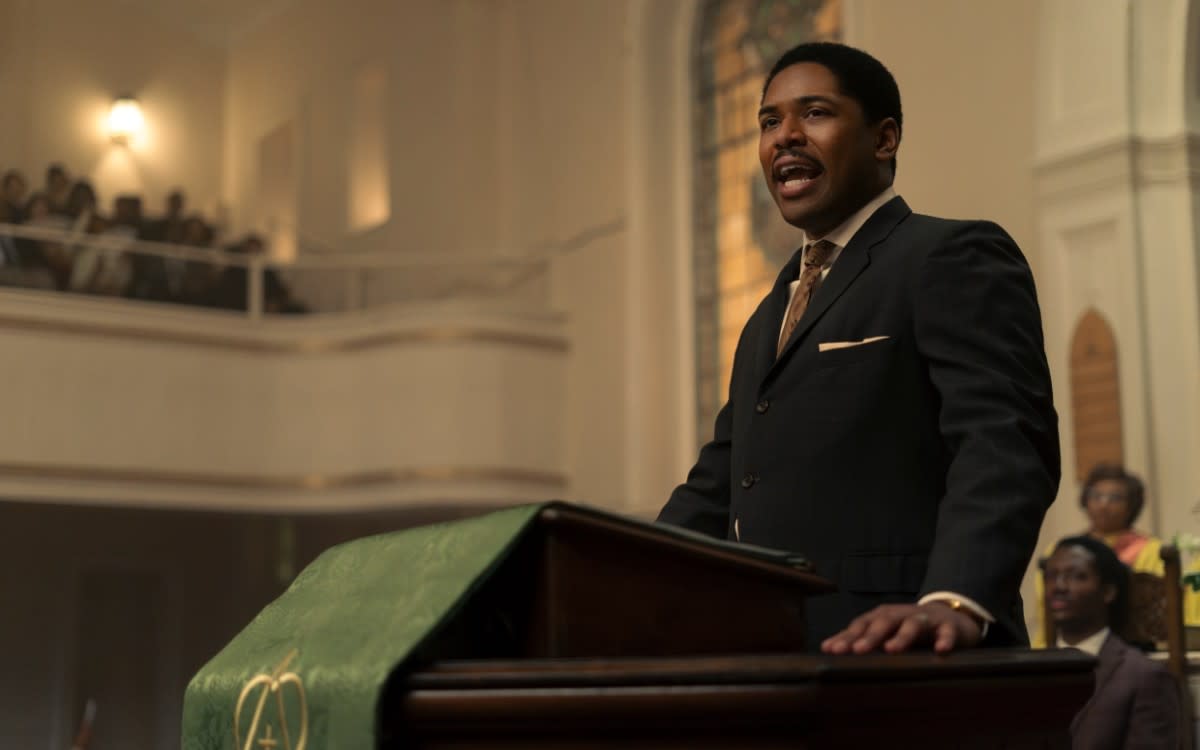
In honor of Black History Month, the fourth series in the Genius franchise— following Einstein, Picasso and Aretha—will honor Dr. Martin Luther King Jr. and Malcolm X when Genius: MLK/X arrives on Hulu and Disney+ today.
The juxtaposition of the lives of the two civil rights leaders is a first for the Emmy Award-winning anthology series but appropriately demonstrates how their dueling philosophies were at the forefront of the Civil Rights Movement.
The eight-episode Genius: MLK/X opens with a look at the childhoods of both Dr. King (Kelvin Harrison Jr.) and Malcolm X (Aaron Pierre) and then moves on for an intimate look into their complex lives as husbands, fathers, brothers and sons.
The focus isn’t just on the two men but is also an examination of the women in their lives, who made it possible for them to do what they did. Weruche Opia plays Coretta Scott King and Jayme Lawson takes on Betty Shabazz. These two women definitely bring truth to the expression behind every great man is a great woman.
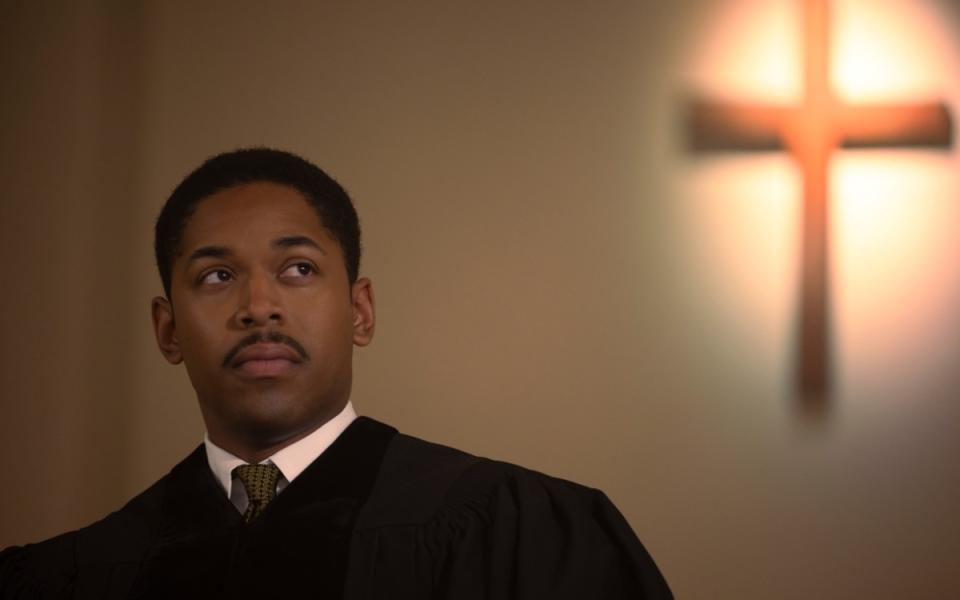
National Geographic/Richard DuCree
Dr. King and Malcolm X’s lives intersected only once at a brief encounter in Washington, D.C. and the series manages to capture that moment as well.
And while there is a lot that will be familiar about the stories of these two men, Genius: MLK/X goes behind the public personas and takes us into their private lives for more of an understanding of what shaped their identities and turned them into the leaders of a movement.
Related: Remembering Martin Luther King, Jr. With 30 Fascinating Facts About the Civil Rights Icon
Parade had the opportunity to speak with Harrison about taking on the role of an American icon like Martin Luther King Jr., what he learned about the man, bonding with Opia, why the juxtaposition of MLK and Malcolm X works, and the importance of airing during Black History Month.
Martin Luther King was an American icon. Did you have any trepidation about playing him? When you played Chevalier, that was a real person but there’s nobody alive who knew who he was, and people have a definite opinion of who Dr. King was.
Yes, it was very intimidating and very scary. I remember the first time my manager told me, “You know, they’re interested in you to play Dr. King for the Genius series.” I was like, “I love the Genius series, but I don’t know if I have what it takes to play Dr. King respectfully. I think I should pass.” And that’s what I did, I said, “No, thank you. They can find someone that may be better suited and prepared to do something like this.”
I’m still playing young adults, you know? Especially when they were saying, “We’re covering him from childhood,” and that I in particular would be coming in from 20 to 39. I was like, “No, thank you.” But then I spoke to the producers and the showrunners, and they wrote me a really lovely letter and they sent me the first script.
And after I read that script, I told them I was crying because we put so much pressure on ourselves as humans, especially people that want to make a difference, people that want to provoke change and challenge everyone’s experience and our understanding of what it means to be a human being, and specifically what it means to be a Black person in America.
To watch these moments of what they wrote of Dr. King not being sure if he had what it takes either, that imposter syndrome actually was my in. It was this not knowing if I was ready, not knowing could I do it, was the question. And that’s what led me into it, but it was very scary.
Related: 55 of Dr. Martin Luther King, Jr.'s Most Inspiring Motivational Quotes
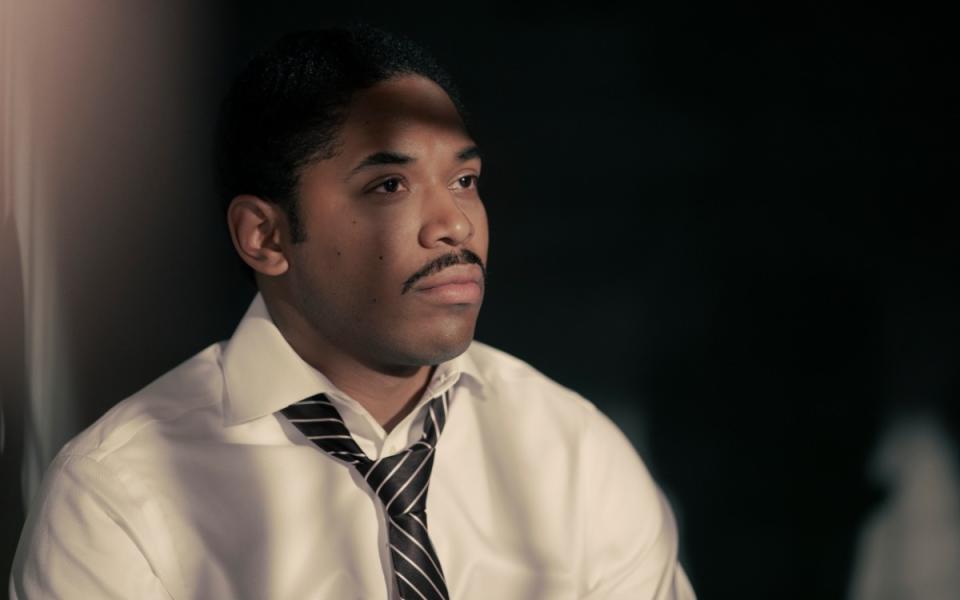
National Geographic/Richard DuCree
It wasn’t just one role. You had two roles. You were playing his private persona and then his public persona. And when he gave speeches, even maybe a third because his voice was completely different for that.
Yes! That’s so cool, I’m so glad you said that. I talked a lot with the dialect coach, and I also talked a lot with the showrunners about there being a performance element to it. And one of the things I love, I can’t remember which book it was, but they had his report cards from seminary school. And there was a performance class, and he would score really high in the performance class. And I was like, “Oh, okay, so there’s an art to this.”
But then I was like, “Who was he outside of the performance class?” So, that told me that he developed that persona. I was doing a deep dive into the interviews, and I was like, “Well, what’s he like when he’s talking to his kids? What’s he like at dinner?” And I would find these little snippets, these little clips, or him in passing when he would be getting into a car and how he would greet everyone on the way there. And I was like, “Oh, that’s his voice. There’s a real Southern quality to it.”
I’m from New Orleans, though my dialect doesn’t really sound like that anymore -- a lot of dialect coaching. But there’s an intimacy and a warmth and a comfort to it, and then there’s a bravado and a lot of breath support in trying to convey and project and affect an audience so that they can really feel what his heart was feeling. There was an art to it, so that was how that was crafted.
Related: Genius: Aretha’s Courtney B. Vance Explains Why Now Is the Time to Tell Aretha Franklin's Story
Was there something else besides the report cards that informed your take on him?
I found this talk show interview with him and he loved to make jokes, and that was really funny to me because you know how dads love to make jokes but they’ll laugh at the wrong joke, and they get a kick out of the fact that they made a funny? That’s Martin. I think he was so overwhelmed with how intimidating and serious everything was. And at the end of the day, we’re talking about a kid who was seven years old and was told that his name’s being changed [his birth name was Michael] and that he has a calling. And the kid’s like, “What is a calling?” basically. What kid understands what being chosen is?
And so, his whole life had been so much about trying to be perfect, trying to live up to Daddy King’s expectations, trying to live up to the expectations from the community. [So he appreciated] every moment he could get to have a good laugh and relax and chill out and just be a person and just be a guy. Up until episode four, he’s under 30, so we’re looking at a 20-year-old with kids, a wife, and a movement to carry. So, those were the moments that I enjoyed the most, was just how is he going to joke with the kids and how is he going to crack jokes with Coretta? And he thinks he’s really funny.
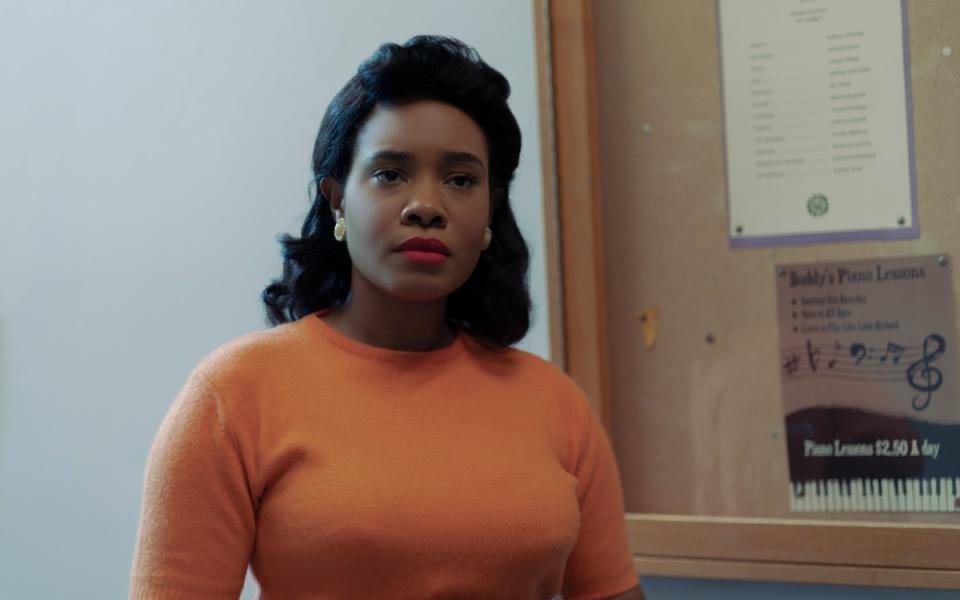
National Geographic/Richard DuCree
Speaking of Coretta, she was such a huge part of his success. She was his equal and she wanted to do so much more and he kept putting her in her place as a woman.
Dr. King, from what I read, he loves her so much and he respects her so much, and one of my favorite parts of the show is the first meeting, when they go on the first date. And him being shocked at how much she knew about philosophy. How much she knew already. He prides himself on being able to spout all his encyclopedia of philosophers and everything he’s read. He’s so well read, and he thinks it’s impressive. You know men, we love to come in and throw our weight around and be like, “Okay, well, that’s going to make me cool.”
And also, him being as the internet calls, a short king, Dr. King was also a short king. There’s this whole thing of trying to make sure that people understand that you should be respected, and you should be seen. And she was just like, “Give it a rest, dude. I read the same books as you. I love the same authors as you. I love poetry as well. I’m looking at politics just as much as you and I have a lot to say,” and that was so attractive to him. He was enamored by the fact that she was expanding his mind every step of the way and he couldn’t get enough of it. We think about Vietnam, that was her. She inspired him to make a step outside of this likable personality that he worked so hard to achieve.
Yeah, so it’s an interesting dynamic because it’s the ‘60s, and also there’s the Southern way. We’re looking at a guy who’s mom was an influential character in Atlanta. She was the one who had the father that was a pastor. She was the one that was successful, and Daddy King came into it. She wore the pants in the house. And I think Martin was maybe a little bit intimidated by seeing how Daddy King was treated, and so he tried to combat it with intelligence, and it just couldn’t work with Ms. Coretta Scott.
Weruche Opia plays Coretta. How did the two of you get comfortable? You are very believable as husband and wife.
That’s amazing. One of the first things I did when I signed onto the project I was like, “Can I get Weruche’s number? Can I call her?” Let’s have a chat, because I’m terrified and I want to know where she’s at, and how we can support each other as we enter this project. And I called her, and she just started laughing. And I was like, “What’s funny?” She was like, “I don’t know,” she said, “This is just so funny.” And I was just like, “Same,” and I just started laughing.
And then we started making jokes about who would have thought that we would be in this situation, playing these people that we respect and love and have learned so much about growing up? And what I knew from there was that there was a safety and a comfortability and a playfulness, and we led with that. Because when we started to research them, we were like, “These are kids ultimately.”
These are 20-something year olds, even younger when they met, that are just trying to figure it out, trying to live the college life, trying to have fun, trying to just be in love and flirt and laugh. And I think that’s what we wanted to remind everyone, that this was who these people were. Laughter was their medicine to get through so many trials and tribulations.
Related: Everything We Know About Disney’s Live-Action Lion King Prequel Mufasa: The Lion King
It also appeared that Dr. King had PTSD from the time he was stabbed. His hand would shake. Was this researched and everything that we saw, is it real?
With that scenario, I think I got as much information as I could. I’m so far from it, so I feel I’m unequipped to say I’m a historian in any way, but I think it is inspired by truthful acts. He was stabbed, it was a big moment for him. And I think Coretta said in her book or he said in one of his books, he said something about, “If I had sneezed,” or something like that. If he had sneezed, he could have lost his life, because the letter opener was that close to his heart.
It was a traumatizing experience, and he tries to not really allow it to define him, but you can tell it took a toll on him. You can tell it was a recognition that what he was doing had actually brought people that even looked like him to a point where they may want to take him out. He thought, “My presence in this movement can potentially take my kids' father away, could take a partner away from my wife. I don’t know how to process that. It’s a bit overwhelming.” I know those sentiments are true. How it actually went down, I am not qualified to say.
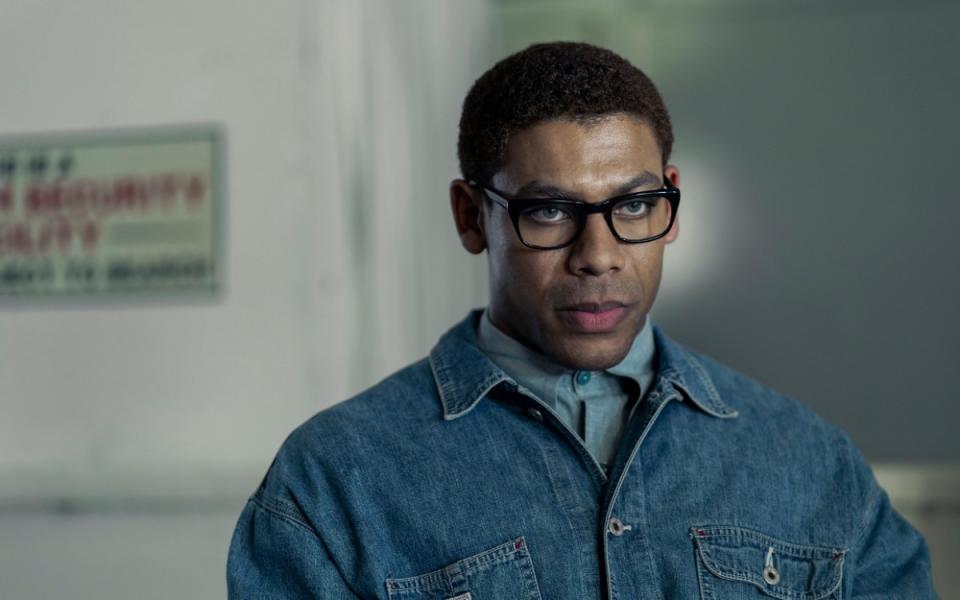
National Geographic/Richard DuCree
This production is not just about Martin Luther King, it’s also about Malcolm X. None of the previous Genius series have done this kind of a juxtaposition before. Why do you think it works?
I think what really works about this show is that we see how they complement each other in a lot of ways. Their lives were kind of similar: They were getting married around the same time, they were having kids around the same time, they were dealing with these father dynamics around the same time. They were going through so much, and history and conversations post their passings is almost like there’s a discourse around how different they were when they were so similar.
Ultimately, Malcolm X’s force and his more aggressive, intentional, louder, broader approach to getting the job done ultimately helped Martin in a lot of ways. Because then Martin was like, “Listen, there’s something on the other side of this that is very scary,” you know? There’s something on the other side of this, this is what our people are saying. If we wanted to not sugarcoat anything, this is how they feel. How do we work together?
It’s like deal making 101. In some ways it reminds me of my agents, you know? Everyone’s playing both sides to see how do we find a common goal? So, I think this show is really effective in also showing how their politics really complemented each other.
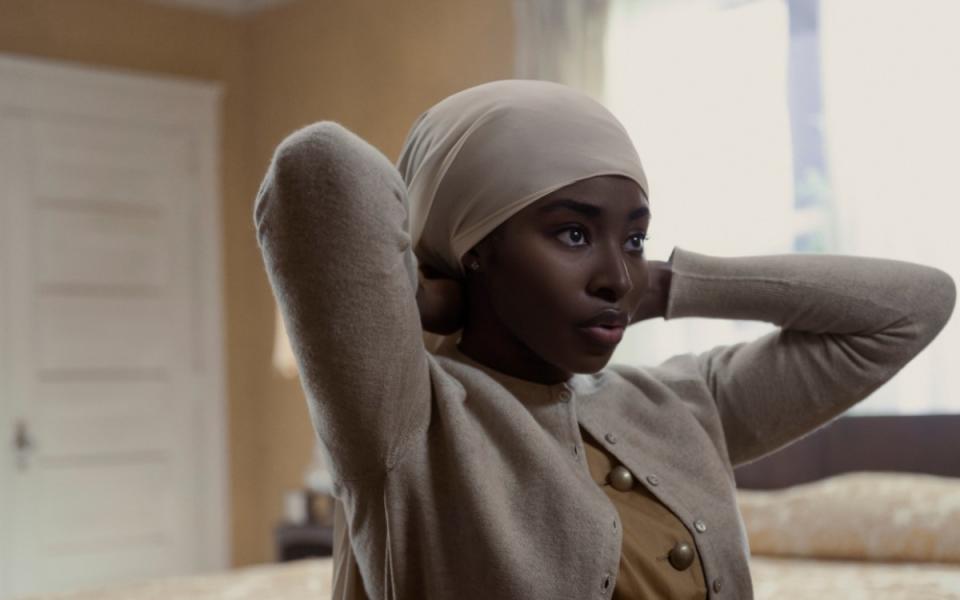
National Geographic/Richard DuCree
This is coming out just in time for Black History Month. Because it is timed for Black History Month, what do you hope that people will take away from it?
I think what’s so cool about Black History Month is it is like a moment of remembrance, right? And so, we get to remember our Black heroes, all our leaders, and remind ourselves why we get to be here and why we get to live these full lives that we get to live.
It’s also a reminder that there’s still so much to be done. What I think is cool about this show being a part of this moment of remembering is getting to see how young they were, how their journeys informed who they were, how they were very vulnerable, very scared, and possessed very normal human qualities that we all experience on a day to day.
That when we watch the news and we hear what’s going on in the world right now, we kind of go, “I’m so overwhelmed, this conflict, this obstacle is too much for me to bear. I don’t know what to do. I don’t know how to handle it.” They had the exact same reaction. It’s the choice to make an effort to find the community, to overcome it, that was really powerful, and that’s why they became what they became.
And I think as we’re remembering, we can see it in ourselves of how many times do I come up against something that I feel unequipped to do that I can’t find a way to overcome? And maybe this could be effective for my future and my children’s future. Once again, it’s just another reminder, it’s an expander.
Genius: MLK/X premiered Thursday, Feb. 1 on National Geographic and is now streaming on on Disney+ and Hulu.
